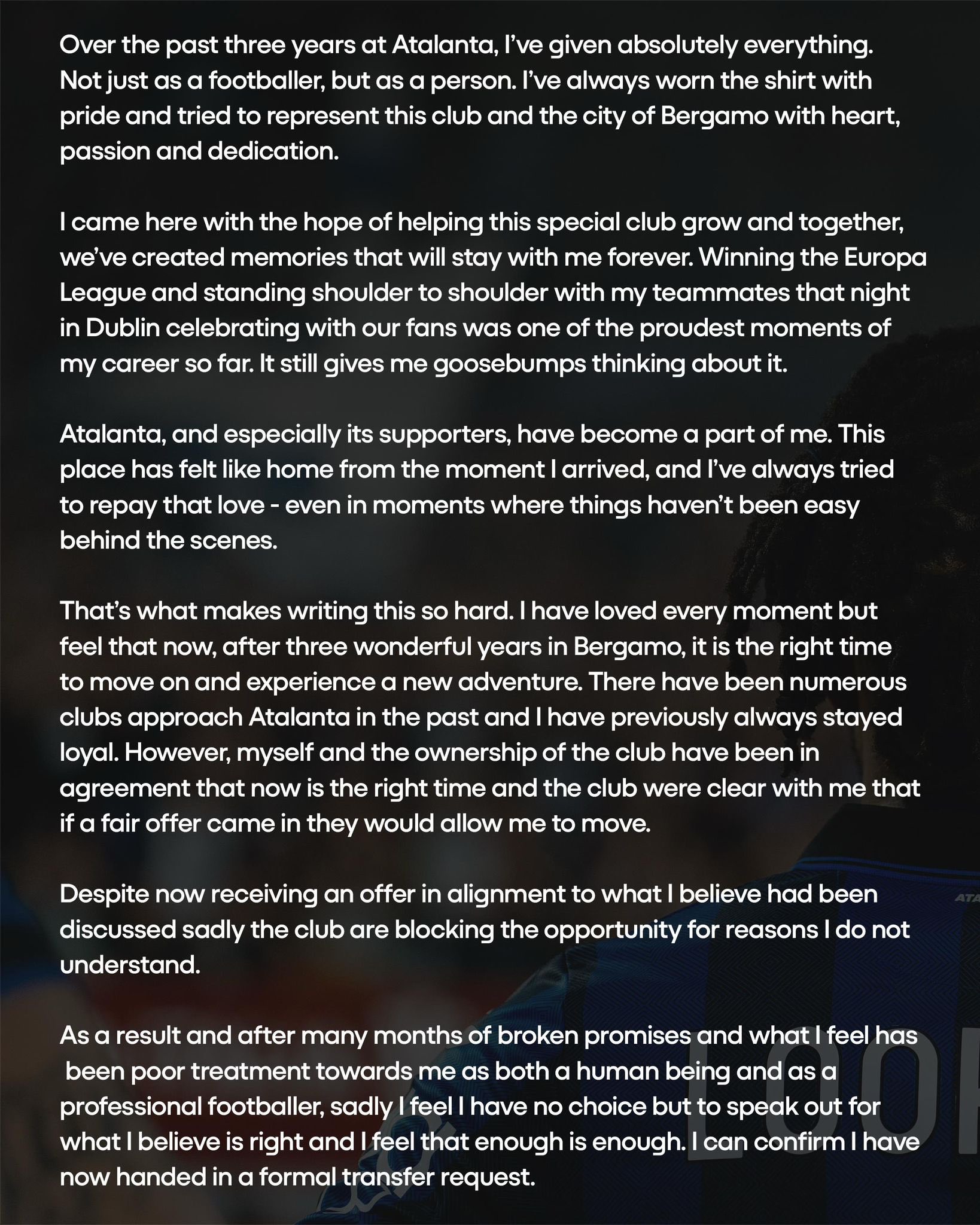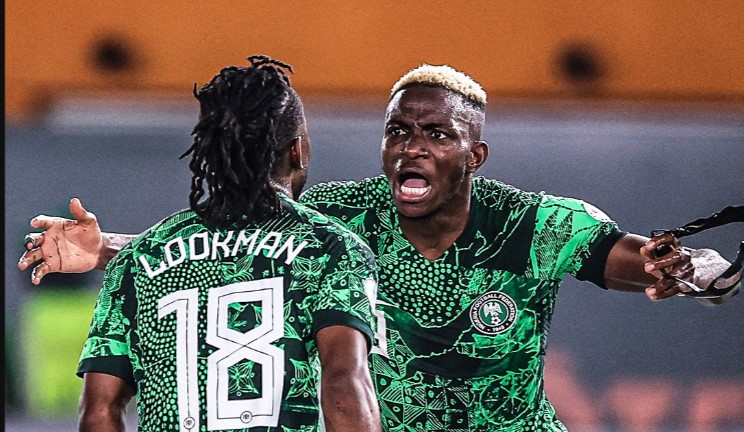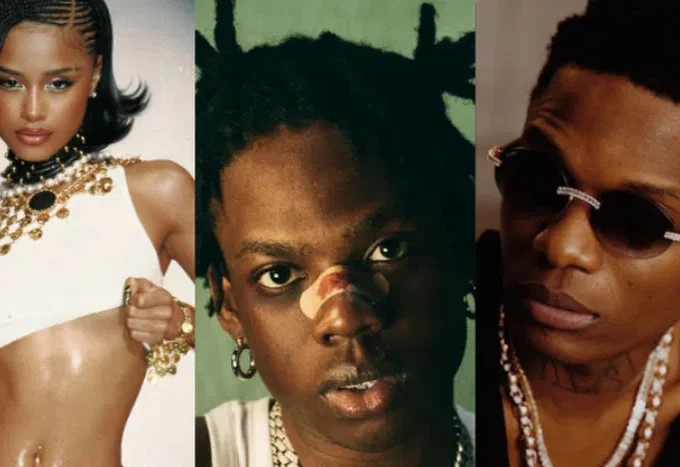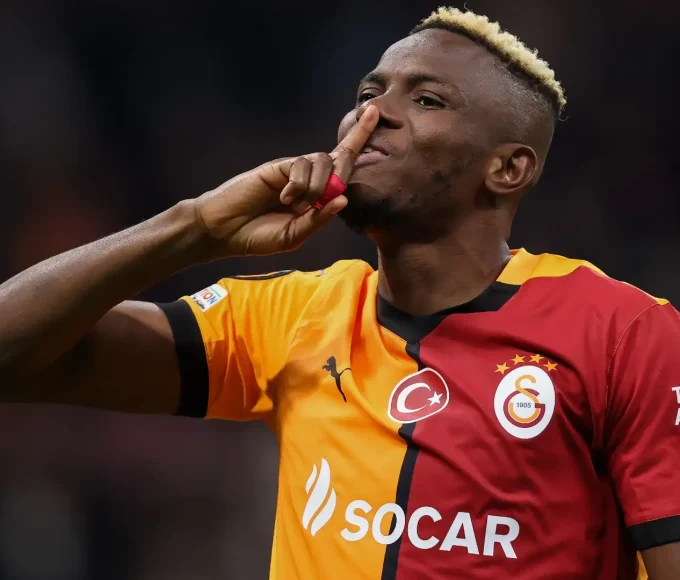
For generations, African players have excelled on Europe’s biggest stages. Yet, some had faced and continue to face a haunting trend off the field: contract disputes, broken promises, and institutional abuse, from Tony Yeboah’s early difficulties in Germany to Victor Osimhen’s public feud with Napoli, and now Ademola Lookman’s controversy over his transfer from Atalanta, the thread is clear: African players are celebrated when convenient but cast aside when they exercise their rights.
This report details how Europe’s top clubs have repeatedly mishandled African stars, which reflects a deep-seated problem of systemic disrespect and asymmetrical treatment in modern football.
Tony Yeboah in Germany (early 1990s)
One of the earliest high-profile instances was Ghanaian striker Tony Yeboah, who joined Eintracht Frankfurt in 1990, the first black player at the club. Despite his eventual success as Bundesliga top scorer, he initially faced overt racism from a section of fans who directed monkey noises and other insults at him. Managerial decisions compounded that hostility. Yeboah was stripped of the captaincy and later saw a proposed transfer to Bayern Munich blocked. He later attributed these setbacks to potential racial bias.
Stephen Appiah and Contract Conflicts
In the mid-2000s, Ghanaian midfielder Stephen Appiah faced systemic conflict at Fenerbahçe over injuries, foreign-player quotas, and perceived mistreatment. What might have been handled via internal negotiation instead became a drawn‑out legal battle. Appiah sought to terminate his contract, citing breach of duty; the dispute was escalated to FIFA’s Dispute Resolution Chamber and eventually appealed at the Court of Arbitration in Sports. While he ultimately prevailed, the path was hostile and adversarial, emblematic of how African players could be mismanaged.
Mohammed‑Awal Issah: Unfinished Transfers and Vanishing Acts
Another case worth mentioning is Ghana’s Mohammed‑Awal Issah, who sued Red Star Belgrade and encountered repeated conflicts throughout European transfers, including unpaid transfer fees, abuse of contract, and suspensions. While less publicly known, it underscores how African players often find themselves entangled in exploitative club dealings.
George Weah: Spotlight on Racism, Even at the Top
Former Ballon d’Or recipient George Weah, as a star of AC Milan, faced racial abuse on the pitch and in the stands of opponents. A noted incident is his altercation with Porto’s Jorge Costa. Weah alleged racism motivated Costa’s provocation. Though UEFA did not impose penalties due to a lack of independent witnesses, the episode crystallised how even globally acclaimed African players were fighting for respect beyond their athletic achievements. Weah later received the FIFA Fair Play Award in 1996.
Victor Osimhen and the Napoli Saga: TikTok Ridicule, Exclusion, and Public Fallout
When Victor Osimhen, Nigeria’s striker, signed for Napoli in the era following Diego Maradona’s influence, he admitted initial fears about racism in Italy, an acknowledgement of the broader environment many African players face.
Despite winning Serie A and starring at Napoli, Osimhen became the subject of ridicule through controversial social‑media posts by the club mocking his appearance and performance. Though Napoli apologised, the damage was done.
In the aftermath of failed transfer moves, including a summer shift falling through, Osimhen was deliberately excluded from Napoli’s Serie A squad for the 2024–25 season. His No.9 jersey was reassigned. Many football fans have described this as a chilling form of ostracisation akin to punitive treatment. Osimhen later secured a loan to Galatasaray. Despite his status, Napoli maintained a sky‑high release clause and resisted more standard European mid‑tier valuations. Many saw this as evidence that African stars, even top‑tier performers, were held hostage.
How Europe Views AFCON: Devaluing African Excellence
Parallel to contractual mistreatment is a disdain for continental African competitions such as AFCON. In Europe, AFCON has often been dismissed as a minor or low‑quality tournament.
This attitude reflects a broader underestimation of African leagues, players, and development systems, feeding into narratives that African stars are second‑class or unproven, despite their global impact. Recall that football pundit Jamie Carragher faced criticism over his previous comments regarding the Africa Cup of Nations, which many perceived as dismissive.
The former Liverpool defender faced criticism for suggesting Mohamed Salah’s chances of winning the Ballon d’Or were slim, as he was not competing in a “major tournament,” specifically the AFCON. Carragher later addressed his comment, saying that his choice of words was poorly phrased.
What I would never want to be described as, as a pundit, would be ignorant or disrespectful. That was never my aim, whether that’s to a player, a club, a country, a continent, an international tournament, whatever that may be, he stated.
In a related article, juxtaposing this alleged abuse, on June 18, the Premier League released the full schedule for the 2025/26 season, set to kick off in August. But instead of excitement, the announcement reignited a wave of racist and dismissive commentary, particularly targeting the Africa Cup of Nations (AFCON) and African players.
Nigerian sports journalist Ivo Okeke pointed out that this pattern is nothing new. Season after season, African footballers face unwarranted scrutiny and disrespect from fans, pundits, and even members of the media. Okeke noted that the Premier League would be nothing without African talent, a claim supported by the fact that no club has won the league in the past decade without a key player of African descent.
Ademola Lookman: From Rising Star to Contract Conflict
Ademola Lookman, whose career trajectory saw steady progress with spells at clubs like Leicester, Everton, RB Leipzig, and culminating at Atalanta, where he blossomed, scoring a hat‑trick to win the Europa League in 2024 and earning CAF African Footballer of the Year honours.
Yesterday, Lookman publicly submitted a transfer request. In a dignified yet pointed social‑media statement, he accused Atalanta of “broken promises” and “poor treatment”, claiming that the club had agreed to let him leave for a fair offer, yet blocked moves to his preferred destination (Inter Milan).

He emphasised loyalty, emotional bonds with fans, and how, despite his commitment, Atalanta reneged on what he understood to be a gentleman’s agreement. The core of the grievance is familiar: African excellence is acknowledged until it becomes inconvenient. Promises are broken; loyalty is exploited; control remains asymmetrically in the club’s hands, even when the player’s case is beyond reproach.
The saga from Yeboah to Appiah, through Weah, Osimhen, and Lookman, shows that African footballers have endured a recurring structural pattern: high performance punctuated by institutional mistrust, broken commitments, and public defamation. In each era, the underlying currents of racial dynamics and economic control persist.
This has to change, and for a meaningful change, European clubs must: Enforce transparency in contracts and honour informal agreements, protect players from public humiliation and narrative manipulation, value African players and competitions equally and understand that professional respect includes respecting player choices, aspirations, and dignity.
Read Also: A Tour of Nigeria’s Utilised And Underutilised Tourist Attractions Across All Regions
About The Author
Related Articles
Wizkid, Rema and Tyla Make Spotify’s 100 Greatest Pop Songs of the Streaming Era
African music has secured another global milestone as Wizkid, Rema and Tyla...
ByWest Africa WeeklyMarch 2, 2026Nigeria Film Industry Calls for Cheaper Tickets and Decentralised Cinemas to Boost Nollywood
Nigeria’s film industry is at a critical crossroads as experts warn that...
ByWest Africa WeeklyFebruary 23, 2026Nigeria to Face Ghana and Senegal in New CAF Nations League
Nigeria will face Ghana and Senegal in the newly introduced CAF Nations...
ByWest Africa WeeklyFebruary 16, 2026Galatasaray Ready to Sell Osimhen if Barcelona Meet €80m Valuation
Victor Osimhen could be on the move again as Spanish giants Barcelona...
ByWest Africa WeeklyFebruary 12, 2026














Leave a comment